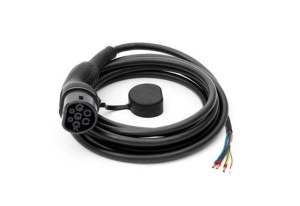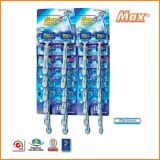EV (electric vehicle) charging cables and connectors play a critical role in the charging process and overall performance of electric cars. The charging cable connects the EV to a power source, while the connector allows for safe and efficient transfer of electricity from the source to the vehicle battery. As the number of electric vehicles on the road increases, so does the demand for compatible and standardized charging cables and connectors. EV charging cables and connectors come in various types and designs, with different plug-in options, amperage ratings, and safety features. Understanding the different types of cables and connectors, their compatibility, and their significance in EV charging is vital for electric vehicle owners, manufacturers, and EV charging infrastructure providers.
The Advantages of EV Charging Cable and Connector
Environmentally Friendly Charging
EV charging cable and connectors offer quick and easy charging without the need for gasoline or oil. This environment-friendly feature makes it suitable for areas where pollution is a concern.
Convenience and Cost-Savings
It offers cost-effective and convenient charging, allowing EV owners to save money on fuel costs while traveling.
Lower Maintenance Costs
Electric vehicles powered by EV charging cables and connectors have lower maintenance costs because they do not require regular oil changes or other routine maintenance tasks.
Improved Access to Charging
The use of EV charging cables and connectors improves access to charging for EV owners, reducing range anxiety and driving the growth of electric vehicle adoption.
The Role of EV Charging Cable and Connector in Multi-Unit Dwelling Charging
The use of EV charging cables and connectors improves access to charging for EV owners, reducing range anxiety and driving the growth of electric vehicle adoption.
Management
Proper management will ensure that residents have access to charging facilities when needed and prevent overloading of the charging infrastructure. Regular maintenance checks and repairs of the EV charging cable and connector need to be carried out to prevent malfunctions and reduce unexpected expenses.
Compatibility
The EV charging cable and connector need to be compatible with the EV models in the multi-unit dwelling. Ensuring compatibility ensures that residents can charge their EVs quickly and reliably.
Safety
The EV charging cable and connector need to be safe from hazards such as electric shock, overheating, and short-circuiting. It is vital to prioritize safety in EV charging infrastructures.
Installation
The installation of the EV charging cable and connector needs to be carried out by certified electricians. Proper installation can help to avoid potential dangers and ensure that charging procedures are seamless.
We provide type 2 charging cable 32a, type 2 charging cable 20m, 32a commando to type 2, 240v charging cable, 16a type 2, 15m type 2 ev cable, 10m type 2 charger cable, type 2 to 3 pin ev charging cable, etc. For more information about types of circuit protection, please feel free to contact us!
Ubicación : No.91 Nanyang Road,Zhiguang Industrial Zone, LiuShi Town, YueQing, 325603 Zhejiang,
Persona a contactar : electric religare, +86 1956 4408 173







